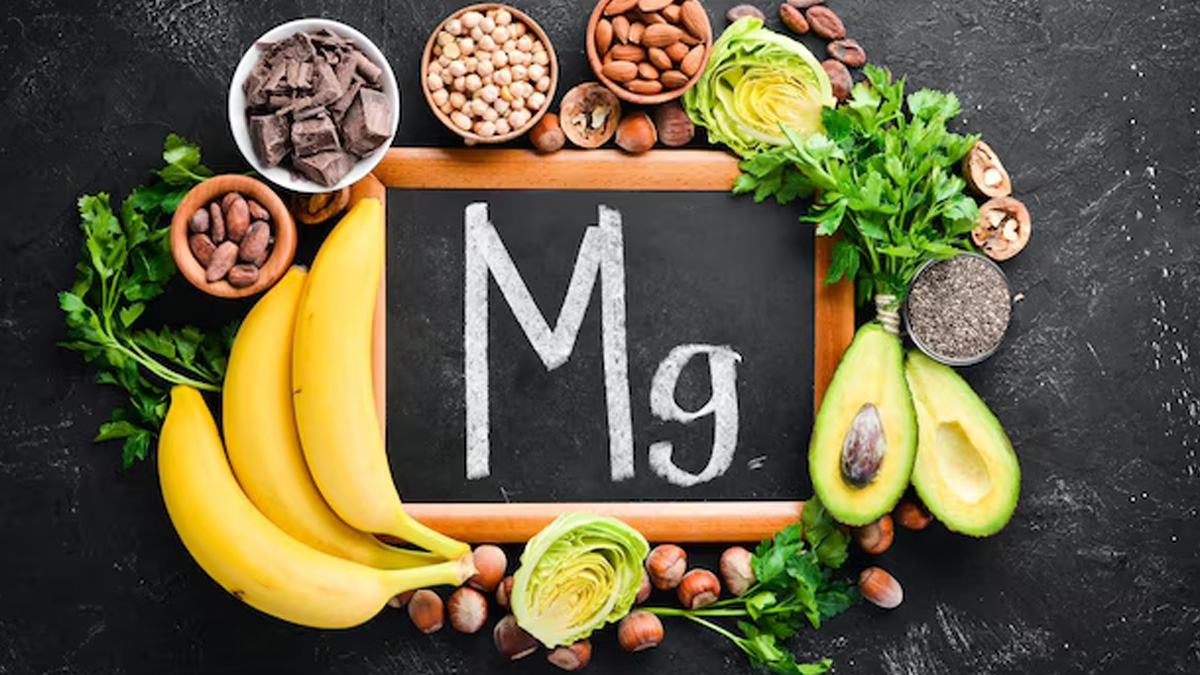
Do you ever feel mentally drained, unable to focus, or struggle with forgetfulness despite a good night’s sleep? If that is the case, then you’re not alone. In fact, what you may be experiencing is brain fog, a medical term that became quite popular during the peak of the COVID-19 pandemic. While it isn't a formal diagnosis, brain fog is a real condition for many people. It’s often caused by stress, poor sleep, hormonal imbalances, or even nutritional deficiencies.
Table of Content:-
One underrated mineral that could play a big role in clearing that fog is magnesium, says Dr Deeksha Parthsarthi, Neuropsychologist at PSRI Hospital, Delhi. In this article, she explains how magnesium affects our brain, the best forms for cognitive support, and how you can naturally increase your intake to sharpen your focus and lift the fog.
Also Read: Can Brain Fog Lead To Poor Gut Health? Expert Shares Warning Signs
What Is Brain Fog?

"Brain fog is not a medical diagnosis but rather a term commonly used to describe a set of symptoms like poor concentration, forgetfulness, confusion, and a general sense of mental fatigue," says Dr Parthsarthi.
Brain fog is triggered by an inflammation in the brain, which can have several underlying causes, including stress, lack of sleep, hormonal imbalances, or nutritional deficiencies.
During the COVID-19 pandemic, many people who were infected with the virus shared that they experienced brain fog even after recovering from illness. A 2021 research backed this up, as studies showed COVID can cause real, measurable changes in brain function, similar to feeling foggy after a few drinks. Scans have even shown tissue changes in areas linked to memory.
Experts think this may be due to inflammation or reduced blood flow in the brain—but the good news is, for most, it improves with time, rest, and healthy habits.
Magnesium Deficiency And Brain Fog

Magnesium is a mineral that is essential for over 300 enzymatic reactions in the body, many of which are involved in energy production and nerve function, explains Dr Parthsarthi. She shares that when magnesium levels are low, it can impair ATP (adenosine triphosphate) production, which is the primary energy source for our cells. “This can lead to physical fatigue and mental exhaustion.”
Additionally, low magnesium can disturb the balance of neurotransmitters like serotonin and dopamine, contributing to mood changes, irritability, and mental confusion. In some cases, chronic deficiency may even resemble symptoms of depression or anxiety.
A 2022 review published in the International Journal of Molecular Sciences also established magnesium's role in keeping the brain healthy. Researchers noted that when magnesium levels are low, it can lead to chronic low-grade inflammation, which is linked to many health problems. In the brain, this inflammation, known as neuroinflammation, is a major factor in neurodegenerative diseases. This review highlights growing evidence that magnesium imbalance may be connected to conditions like multiple sclerosis, Alzheimer’s, and Parkinson’s disease.
Can Magnesium Help Manage Brain Fog?
According to Dr Parthsarthi, magnesium plays a key role in many neurological functions. "It supports neurotransmitter activity and protects the brain from overstimulation, which can help reduce feelings of brain fog. By promoting better sleep, reducing stress, and supporting energy production at the cellular level, magnesium may help improve overall mental clarity."
However, not all forms of magnesium are equally absorbed by the body. "For cognitive support, magnesium L-threonate is considered the most effective. This form has the unique ability to cross the blood-brain barrier and increase magnesium levels in the brain specifically. Some studies suggest that magnesium L-threonate can enhance learning ability, working memory, and short- and long-term memory," the doctor adds.
Other forms like magnesium glycinate and magnesium citrate are also well absorbed and may help with general relaxation and sleep, which indirectly support cognitive health.
Also Read: Screen Fatigue, Doom Scrolling And Brain Fog: Are These New-Age Alzheimer’s Triggers?
Are Magnesium-Rich Diets Enough, Or Is Supplementation Needed?

The good news is that it is possible to meet your magnesium needs through diet, especially if you consume a balanced intake of magnesium-rich foods. These include leafy green vegetables (like spinach and kale), nuts and seeds (such as almonds and pumpkin seeds), legumes, whole grains, and dark chocolate.
"However, many people do not reach the recommended daily intake due to modern dietary habits and soil depletion, which affects the mineral content in food," shares Dr Parthsarthi. In such cases, a magnesium supplement may be beneficial, especially for individuals experiencing symptoms of deficiency.
Magnesium needs vary by age and sex. According to the Office of Dietary Supplements (ODS) of the National Institutes of Health (NIH), children need 80-240 mg daily, while teens require 360–410 mg. Adult men need 400–420 mg and women 310–320 mg. Requirements rise during pregnancy (350–360 mg) and lactation (310–320 mg).
It’s important to speak with a healthcare provider before starting any supplement to ensure it’s necessary and safe.
Conclusion
Brain fog can occur due to many reasons, with stress or lack of sleep being the most common causes. However, sometimes, it can also be due to nutritional deficiency. For instance, magnesium, an often-overlooked mineral, could be playing a bigger role in your brain health than you realise. But with small lifestyle changes, like eating more magnesium-rich foods or taking the right supplement, you may be able to lift that mental fog.
Also watch this video
How we keep this article up to date:
We work with experts and keep a close eye on the latest in health and wellness. Whenever there is a new research or helpful information, we update our articles with accurate and useful advice.
Current Version